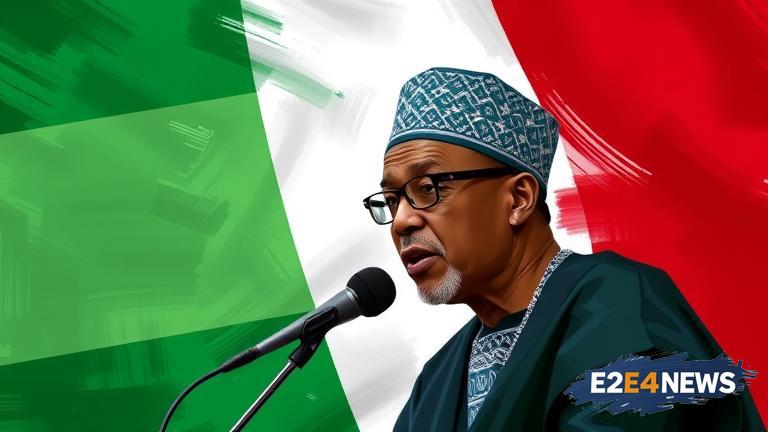The 2027 presidential election in Nigeria is shaping up to be a highly contested and unpredictable race. With various candidates and parties vying for power, alliances and coalitions are being formed to strengthen chances of winning. However, Professor Adibe has sounded a note of caution to Peter Obi, the Labour Party candidate, about the potential risks of forming a coalition with the African Democratic Congress (ADC). According to Professor Adibe, while a coalition with the ADC may seem like a strategic move to gain more votes, it could ultimately backfire and harm Obi’s chances. The ADC has been known to have internal conflicts and power struggles, which could spill over into the coalition and cause instability. Furthermore, the ADC’s ideology and policies may not align with those of the Labour Party, which could lead to conflicts and contradictions. Professor Adibe also warned that the ADC’s leadership may have ulterior motives for forming a coalition, which could compromise Obi’s integrity and values. In addition, the coalition could lead to a loss of autonomy and independence for the Labour Party, as the ADC may try to exert its influence and control over the party. The 2027 presidential election is expected to be a closely contested race, with the ruling All Progressives Congress (APC) and the main opposition party, the Peoples Democratic Party (PDP), also vying for power. The election will be a test of the country’s democratic institutions and the ability of the electoral commission to conduct a free and fair election. The candidates and parties will need to navigate the complex political landscape and make strategic decisions to win the support of voters. The role of coalitions and alliances will be crucial in determining the outcome of the election. However, as Professor Adibe has cautioned, these coalitions must be formed with careful consideration and a clear understanding of the potential risks and benefits. The Labour Party and Peter Obi will need to weigh the pros and cons of forming a coalition with the ADC and consider alternative strategies to gain more votes. The party will also need to ensure that its ideology and policies are not compromised in the process of forming a coalition. The 2027 presidential election will be a defining moment for Nigeria’s democracy, and the outcome will have significant implications for the country’s future. The election will be closely watched by the international community, and the candidates and parties will need to demonstrate their commitment to democratic values and principles. In conclusion, while a coalition with the ADC may seem like a strategic move for Peter Obi and the Labour Party, it is crucial to approach such a move with caution and careful consideration. The potential risks and benefits must be weighed, and alternative strategies must be considered to ensure that the party’s ideology and policies are not compromised. The 2027 presidential election will be a highly contested and unpredictable race, and the candidates and parties will need to navigate the complex political landscape with care and strategic thinking.
